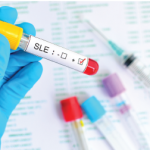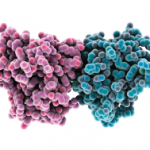“So that really changed the way we were thinking about this regulator from not just a protein that is controlling localization, but also that it can fundamentally set the threshold of these receptors,” said Dr. Barton. More importantly, he added, this idea could have major consequences for the study of self- and non-self-discrimination.
Researchers in Dr. Barton’s lab conducted an analysis of Unc93B mutants to identify regions necessary for functioning. They then used knockout mice that lacked the function of TLR 7, 9 and 3, but had TLR4 intact, to test for mutants that affect TLR. They found that Unc93B1 is ubiquitin. The overall analysis of Unc93b1 mutants revealed a surprisingly complex regulation of TLR trafficking and function, Dr. Barton said. It also showed that distinct regions of Unc93b1 mediate how individual TLRs and subsets are regulated.
In addition, the research found that ubiquitylation of Unc93b1 regulates Unc93b1/TLR localization and limits responses of endosomal TLRs. Dr. Barton said, “We think the modulation of this pathway may facilitate recognition of self-nucleic acids.”
Catherine Kolonko is a medical writer based in Oregon.

